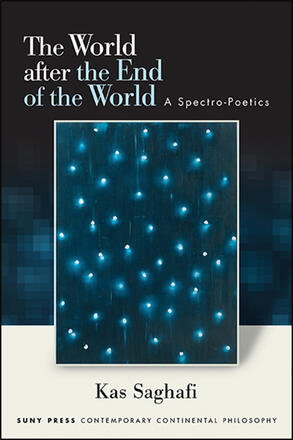
The World after the End of the World
A Spectro-Poetics
Alternative formats available from:
Examines themes of loss and mourning in the late work of Derrida.
Description
In this book, Kas Saghafi argues that the notion of "the end the world" in Derrida's late work is not a theological or cosmological matter, but a meditation on mourning and the death of the other. He examines this and several other tightly knit motifs in Derrida's work: mourning, survival, the phantasm, the event, and most significantly, the term salut, which in French means at once greeting and salvation. An underlying concern of The World after the End of the World is whether a discourse on salut (saving, being saved, and salvation) can be dissociated from discourse on religion. Saghafi compares Derrida's thought along these lines with similar concerns of Jean-Luc Nancy's. Combining analysis of these themes with reflections on personal loss, this book maintains that, for Derrida, salutation, greeting, and welcoming is resistant to the economy of salvation. This resistance calls for what Derrida refers to as a "spectro-poetics" devoted to and assigned to the other's singularity.
Kas Saghafi is Associate Professor of Philosophy at the University of Memphis. He is the author of Apparitions―Of Derrida's Other.
Reviews
"The prologue and opening and closing chapters are satisfyingly clarifying and surprisingly moving … the end of the world of each person leaves traces, Derrida believed, and Saghafi's book serves Derrida's traces as well readers." — CHOICE
"Saghafi's book makes a remarkable contribution as a coming-to-terms with interminable mourning." — Peggy Kamuf, author of To Follow: The Wake of Jacques Derrida